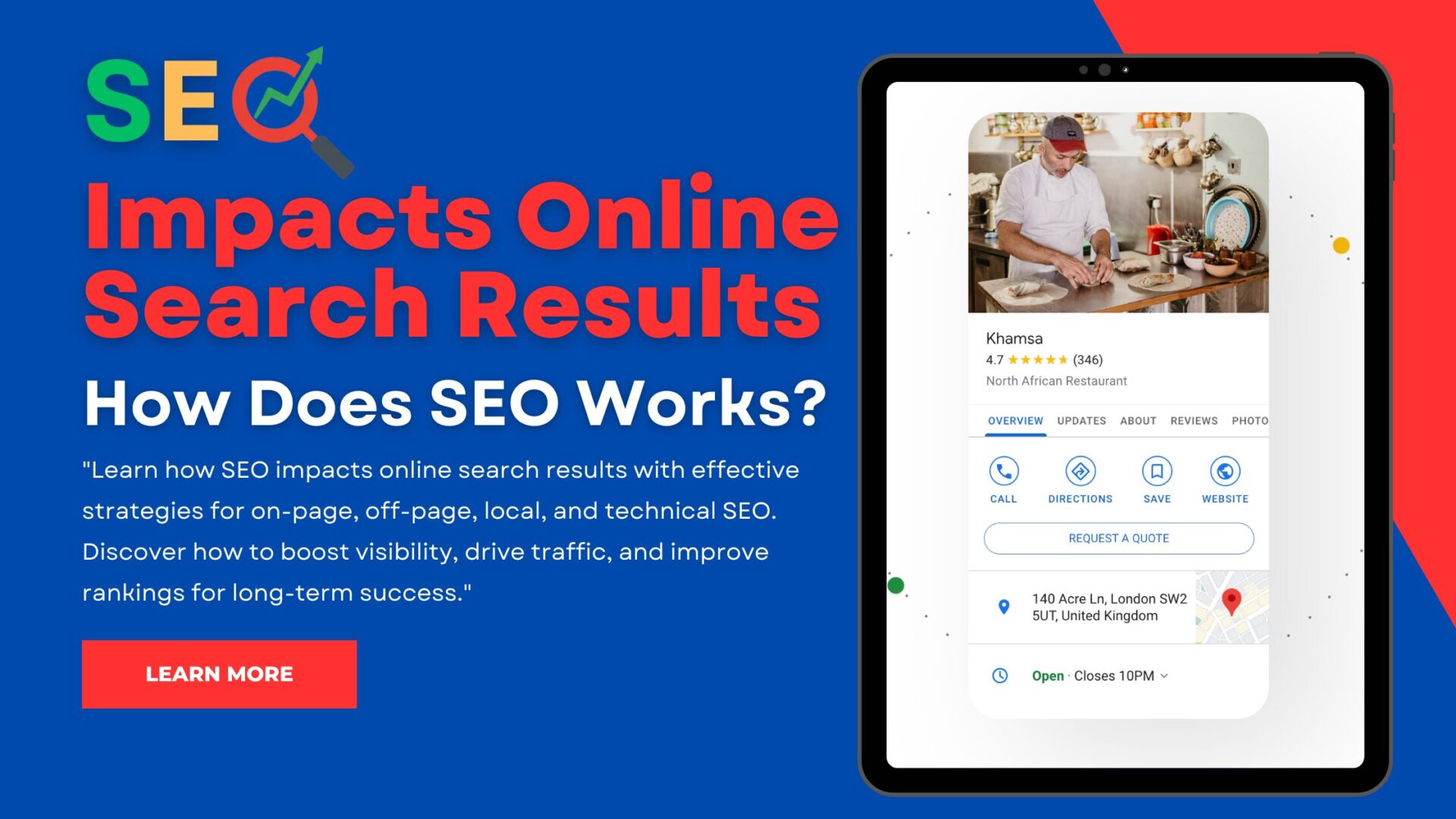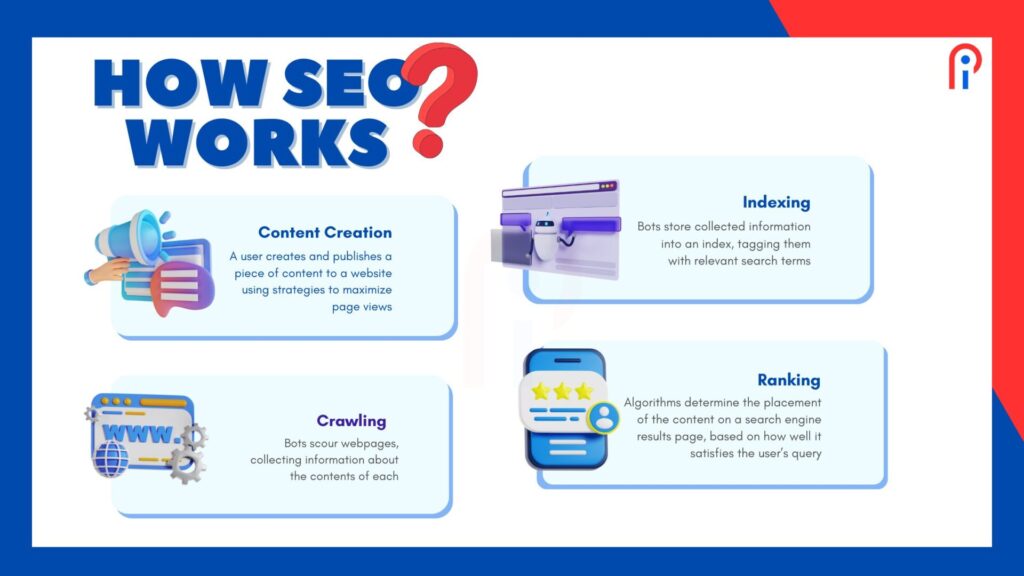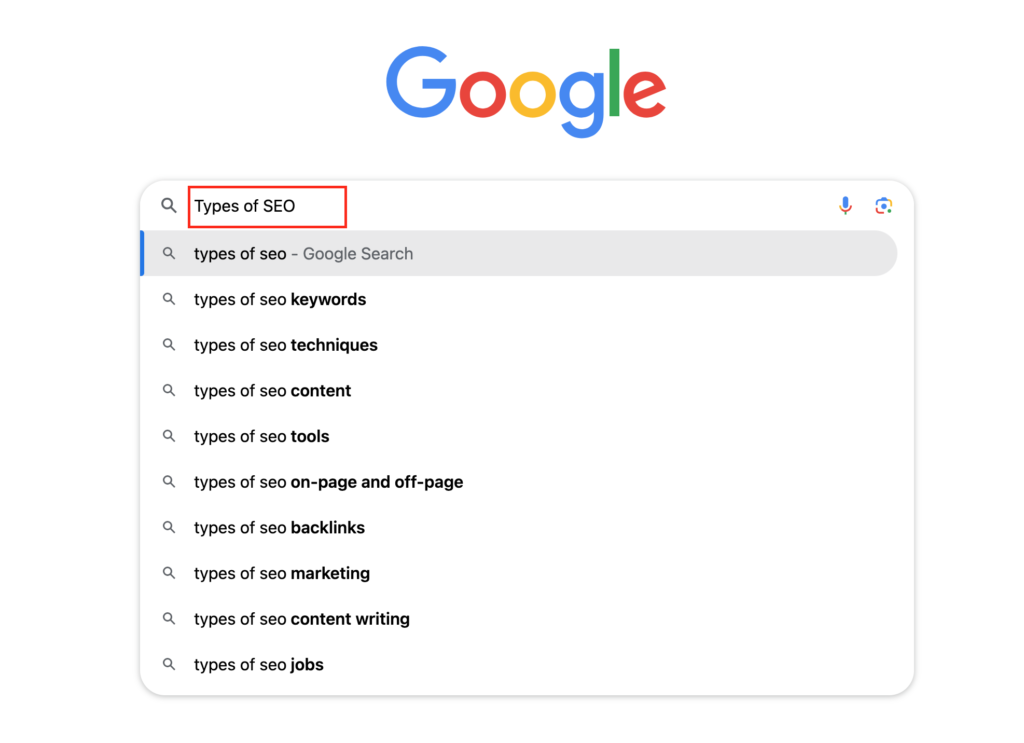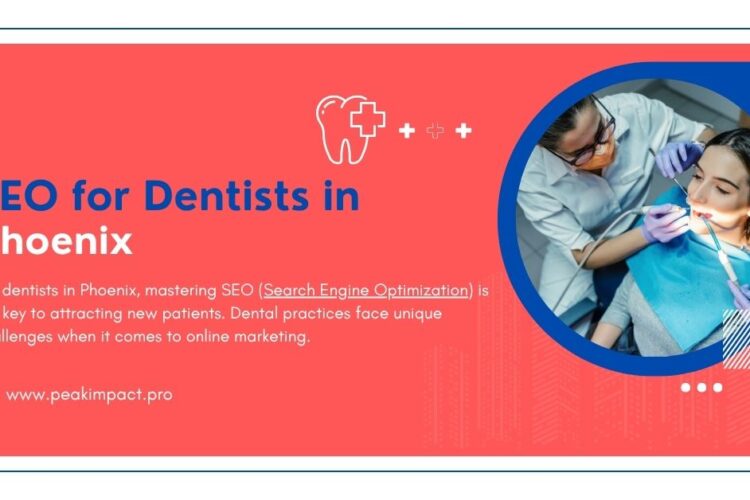
Search Engine Optimization (SEO) is crucial for improving a website’s visibility on search engines. When done right, SEO can drive more traffic to your site, boost your rankings, and lead to more conversions.
Here, we’ll explore how SEO impacts online search results, the various types of SEO, and effective strategies you can implement.
Quick View
What is SEO?
SEO stands for Search Engine Optimization. It refers to a set of strategies aimed at improving a website’s ranking on search engines like Google. The better your SEO, the higher your site will appear in search results, driving more organic traffic.
How Does SEO Work?

Search engines use algorithms to rank websites based on various factors. These include the relevance of content, keywords, and site authority. SEO helps your website align with these factors, ensuring your content is seen by the right audience.
Key Factors in SEO:
- Competitors Analysis: Investigate and analyze your competition in your niche.
- Keywords: Search engines scan for keywords that match user queries.
- Create Content: Create unique and informative content for your website
- Mobile Optimization & Speed: Optimize for Mobile & website speed
- Backlinks: Websites with credible backlinks rank higher.
- User Experience: Fast, mobile-friendly sites get better rankings.
- Ranking & Monitoring: Track the ranking and performance of a website.
Types of SEO

SEO can be divided into four key types:
1. On-Page SEO
On-page SEO involves optimizing content on your website. This includes adding relevant keywords, optimizing meta tags, and creating high-quality content. Keywords like “small business SEO” should be naturally included in your headings and body text.
Example:
Using “what are SEO services” in your content can help rank for queries about SEO.
2. Off-Page SEO
Off-page SEO focuses on actions taken outside your site. These include building backlinks from credible sites, social media activity, and influencer marketing. High-quality backlinks improve your authority in search results.
Example:
Restaurants can benefit from local blogs linking to their site, boosting off-page SEO.
3. Technical SEO
Technical SEO refers to optimizing your website’s structure. Key elements include site speed, mobile optimization, and ensuring search engines can crawl your site.
Example:
A site with faster load times will rank higher than one with slow speed.
4. Local SEO
Local SEO helps businesses rank in location-based searches, such as “best restaurants near me.” Optimizing your Google My Business profile and having consistent NAP (Name, Address, Phone) data are key to local SEO.
Example:
A small business SEO strategy should include optimizing for local searches to attract nearby customers.
On-Page SEO and Its Impact
On-page SEO is critical in driving visibility and traffic. It involves optimizing the elements that exist on your site itself. These include:
- Meta Descriptions: Use of compelling meta descriptions with keywords like “what is meta keywords in SEO” can increase click-through rates.
- Headings and Content: Structured content that is easy to read will improve user experience and engagement.
Pages optimized with relevant keywords see up to a 30% increase in organic traffic.
Off-Page SEO and Search Results
Off-page SEO boosts your site’s authority and trustworthiness. By building credible backlinks, you signal to search engines that your site is reliable. This helps in improving rankings for competitive keywords.
Example:
A site with backlinks from industry experts will rank higher for “SEO strategies” or “SEO businesses.”
Local SEO and Its Role in Search Results
Local SEO is key for businesses targeting local customers. Using “how to SEO Google” as a focus keyword for location-based searches will improve local rankings.
Google My Business:
Make sure your business is listed and updated with correct information. Local reviews and citations are important as well.
Example:
A café in New York optimized for “local SEO strategy” can rank for “best coffee in New York,” driving 78% more local traffic.
How SEO Affects Organic vs. Paid Search Results
SEO focuses on organic results, which are unpaid. Organic search is sustainable and can drive long-term traffic to your site. Unlike paid ads, SEO strategies take time but yield lasting results.
Example:
A small business that invests in SEO will see organic traffic grow over time, reducing its reliance on paid search campaigns.
Measurable SEO Impacts on Search Results
SEO has measurable results. You can track metrics like:
- Click-Through Rate (CTR): Improved by compelling meta descriptions.
- Conversions: Targeting the right keywords leads to better conversions.
- Organic Traffic: The more optimized your site, the higher your traffic.
Businesses that invest in SEO see up to a 200% increase in organic traffic over time.
Content’s Role in SEO
Content is king in SEO. Search engines prioritize high-quality, relevant content. Updating your site regularly with valuable content boosts your ranking. Incorporate keywords naturally to avoid keyword stuffing.
Example:
Using long-tail keywords like “what are SEO services” in a blog post can improve your rankings.
SEO Best Practices
- Keyword Research: Always conduct thorough keyword research. Use tools to find high-traffic, relevant keywords like “search engine optimization.”
- Mobile Optimization: Ensure your website is mobile-friendly.
- Structured Data: Adding structured data helps search engines understand your content better.
Common SEO Mistakes to Avoid
- Keyword Stuffing: Using too many keywords harms readability and rankings.
- Low-Quality Backlinks: Avoid backlinks from spammy or irrelevant sites.
- Duplicate Content: Google penalizes sites with duplicate content.
Summary
SEO has a profound impact on online search results. By implementing effective on-page, off-page, technical, and local SEO strategies, businesses can boost their rankings, increase traffic, and drive conversions.
Following best practices and avoiding common mistakes ensures long-term success. Whether you’re a small business or a larger organization, SEO is a vital part of your online growth strategy.
FAQs
What are SEO services?
SEO services involve optimizing your website to rank higher on search engines and attract organic traffic.
What is meta keywords in SEO?
Meta keywords are tags that describe the content of your page, but they are no longer a major ranking factor for search engines.
How can a small business improve SEO?
Small businesses can improve SEO by focusing on local SEO, optimizing their Google My Business profile, and creating relevant content.
What is the role of an SEO agency?
An SEO agency helps businesses improve their online visibility by developing customized SEO strategies, managing technical SEO, and building backlinks.
How to SEO Google for better rankings?
To rank better on Google, focus on high-quality content, relevant keywords, fast load times, and mobile optimization.




